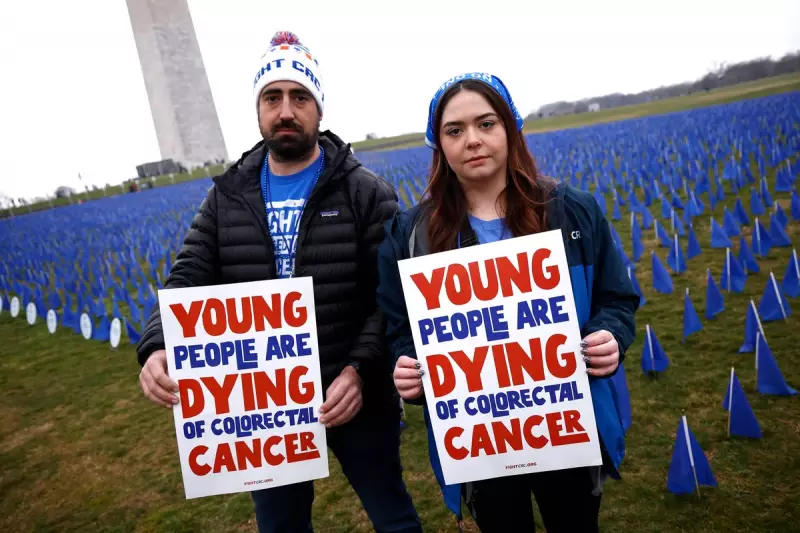
Medical experts are issuing an urgent warning about the subtle early symptoms of colon cancer that patients frequently dismiss for months, potentially delaying life-saving treatment. New research highlights how recognising these warning signs early can dramatically improve survival rates.
The Silent Alarm Bells Most People Miss
According to recent studies, many colorectal cancer patients experience symptoms up to two years before diagnosis but fail to recognise their significance. The most commonly overlooked indicators include:
- Persistent abdominal pain that doesn't resolve with usual treatments
- Rectal bleeding or blood in stools
- Unexplained changes in bowel habits lasting more than three weeks
- Unexpected weight loss without diet or exercise changes
- Constant fatigue that rest doesn't alleviate
- Iron deficiency anaemia in men and post-menopausal women
Why Early Detection Matters More Than Ever
Colorectal cancer remains one of the most preventable yet deadliest cancers when caught late. "The window of opportunity for early intervention is crucial," explains Dr Marco Geracdis, lead researcher from the University of Glasgow. "Patients who seek medical attention at the first sign of symptoms have significantly better outcomes."
Alarmingly, research shows that younger patients are particularly prone to dismissing symptoms, assuming they're too young for serious bowel conditions. This dangerous misconception can lead to delayed diagnoses in the under-50 population.
When to Take Action: The NHS Guidelines
The National Health Service emphasises that anyone experiencing these symptoms for three weeks or longer should consult their GP immediately:
- Persistent changes in bowel habits
- Unexplained bleeding from the bottom or blood in stools
- Persistent lower abdominal pain or discomfort
- A feeling of not having emptied your bowels properly after going to the toilet
- Unexplained weight loss
- Extreme tiredness for no obvious reason
Remember: while these symptoms often have less serious causes, getting them checked promptly could save your life. The NHS bowel cancer screening programme also offers regular tests for those aged 60-74, with plans to expand to younger age groups.
Breaking the Taboo: Talking About Bowel Health
Medical professionals stress the importance of overcoming embarrassment when discussing bowel symptoms. "Your GP has heard it all before," assures one consultant gastroenterologist. "No symptom is too embarrassing when it comes to potentially saving your life."
With colorectal cancer rates rising in younger populations, health authorities are urging greater public awareness of these early warning signs. Early detection doesn't just improve survival rates—it often means less invasive treatments and better quality of life during recovery.





